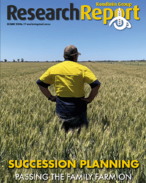Aside from the usual requirements of preventing fraud and other dishonest conduct, strong regulation of the integrity of offsets is needed to ensure that the ERF delivers genuine abatement. Also, it means that those purchasing ACCUs have confidence that the units are a reliable product.
The logic of integrity regulation can be set out as follows:
-
For any credits-based system to work, the system needs a positive value for abatement, which in turn requires reductions in emissions (or sequestration) beyond what would have happened anyway.
-
If Australia were to grant ACCUs for projects that people were going to do anyway, it would be considerably harder for the nation to meet its target, which is framed as reducing emissions in 2020 below a specific historical level.
-
The object of Australia's greenhouse policy instruments is to reduce greenhouse gas emissions (in particular, as implied by the targets summarised in Figure 3.1). This can only be achieved if emissions are genuinely reduced from what they would otherwise have been.
-
If ACCUs were granted for activities that people were going to do anyway, the offset system would not be reliable. For example, if it required no extra effort to reduce emissions, the price of ACCUs would fall. As the price fell, there would be no incentive for extra effort to reduce emissions.
-
Importantly, it is in the interests of participants to have strong additionality and integrity regulation. It would not be sensible to incur costs in a project if at any time the value of the credits earned could be undermined by a loss of confidence in the system.
Explore the full Workshop Manual: The business case for carbon farming: improving your farm’s sustainability (January 2021)
Read the report
RESEARCH REPORTS
1. Introduction: background to the business case
This chapter lays out the basic background and groundwork of the manual
RESEARCH REPORTS
1.2 Being clear about the reasons for participating
Introduction: background to the business case
RESEARCH REPORTS
1.4 Working through the business case for carbon farming
Introduction: background to the business case
RESEARCH REPORTS
1.5 Factors determining project economics
Introduction: background to the business case
RESEARCH REPORTS
1.8 Important features of the business case
Introduction: background to the business case
RESEARCH REPORTS
2. How carbon is farmed under the ERF
This chapter considers in detail the activities that constitute carbon farming
RESEARCH REPORTS
2.5 Carbon farming under the Emissions Reduction Fund
How carbon is farmed under the ERF
RESEARCH REPORTS
3. The policy context and the price of ACCUs
This chapter takes a broad look at the policy context for carbon farming






















